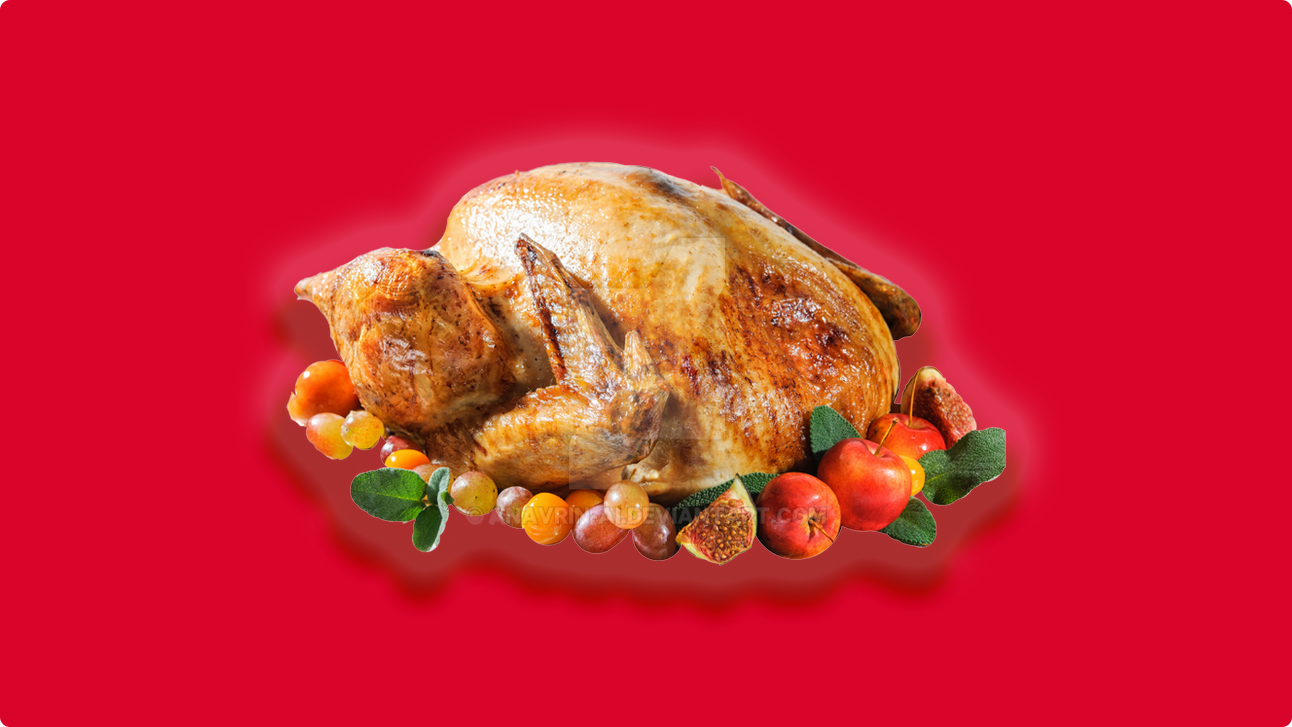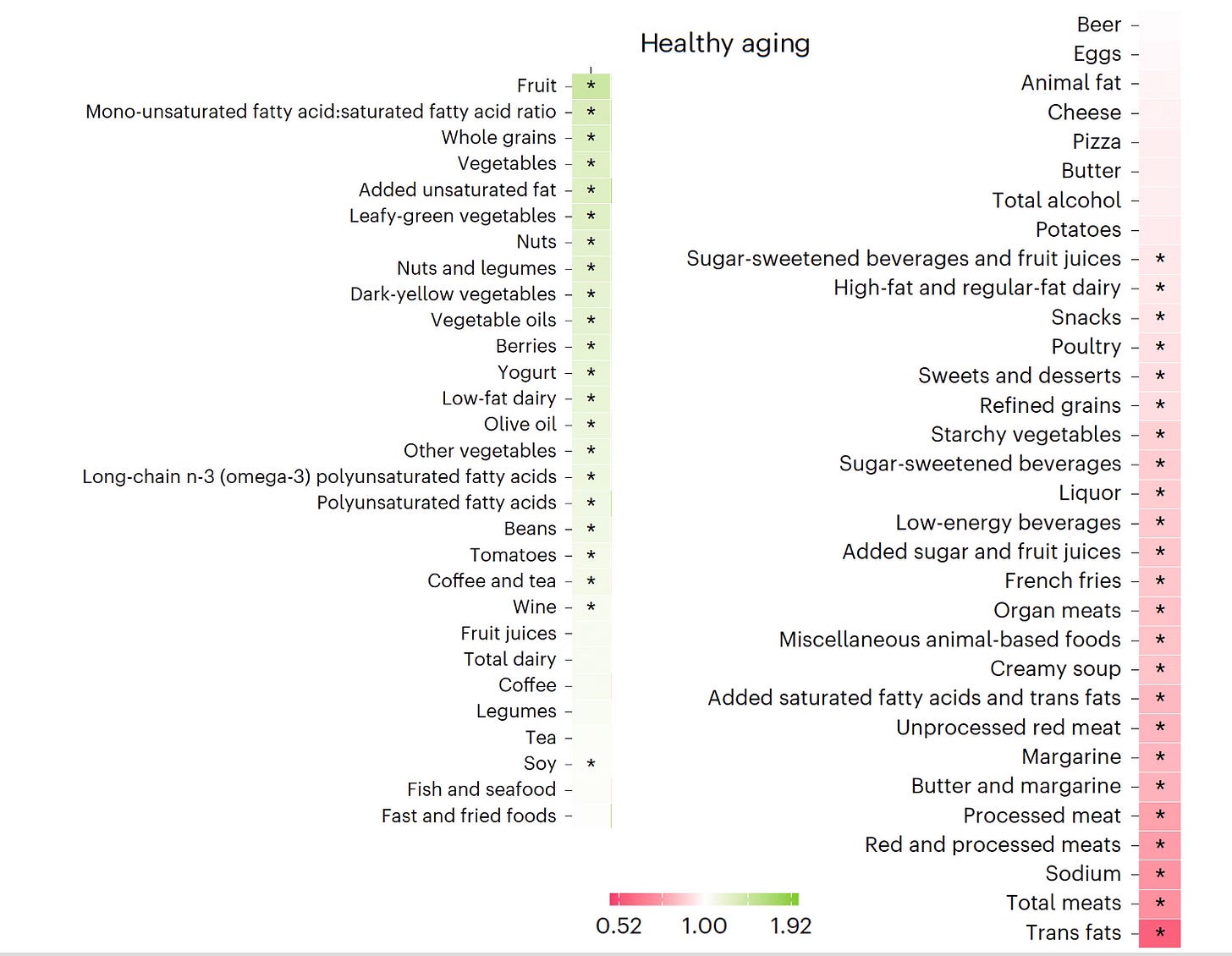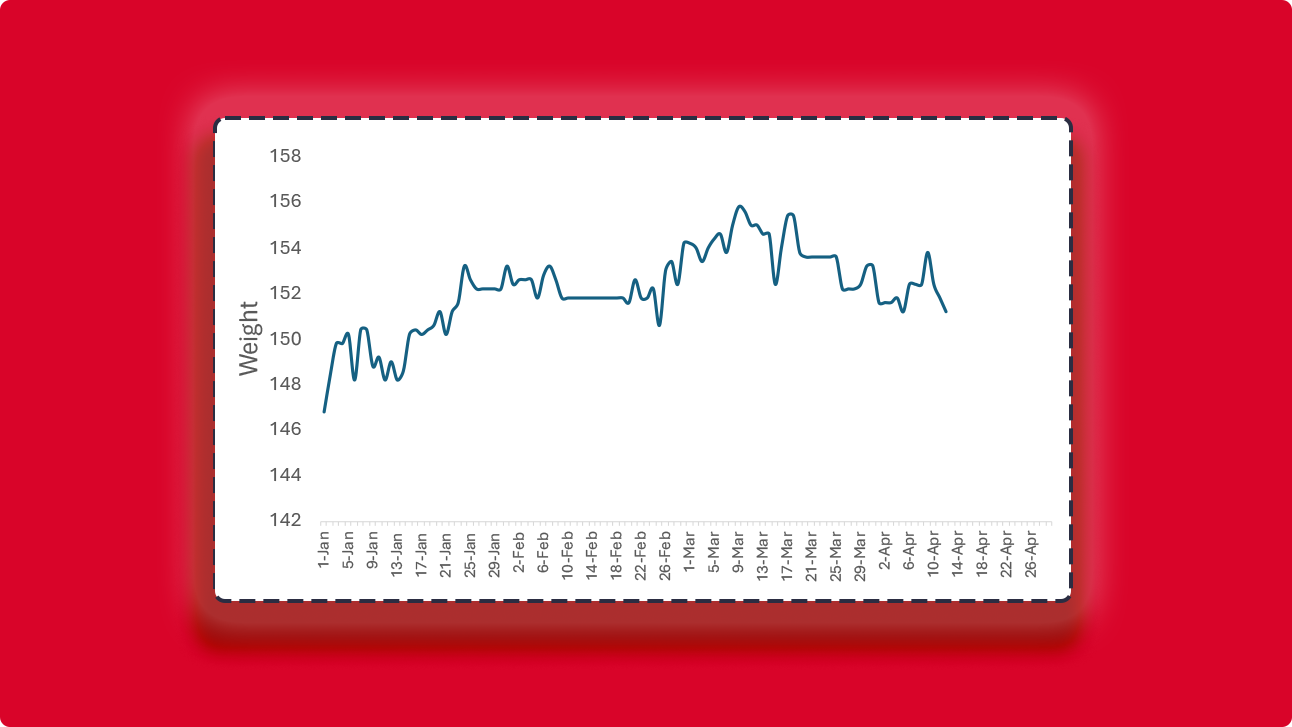How I decide what I'm going to eat
Everyone says to eat a healthy diet, but how do I do that practically?
Top of the morning, sapien. Welcome to Common Sense Medicine, where I try and keep you up to date on the latest and greatest in healthy living.
This week, I read an essay titled “High Agency.” The ideas around this essay are simple — what if you had to get something done, with no excuses? What would it look like if you were determined to solve your problems at any costs?
I told myself one thing in the beginning of the year which was to publish one blog post a week, with no breaks this past quarter. I was able to do that. Unfortunately, moving to quarter two, I’m still working on the second goal for my health, which was to finish out the hypertrophy cycle (which was interrupted with my hip impingement issues, but still continuing on that journey).
Moving onto Q2 2025, I have more goals to hit, and catching up on the things that I tried in Q1. High agency is the motto, and I have recognized that it’s the only thing that lets us carry on.
The newsletter topic follows this which is a discussion around what the healthiest foods are to eat, based on a 30-year survey of healthcare professionals. To tie it back to the intro — agency is related to diet because it is all about the choice of which foods we eat, which is a part of my goals for Q2 2025. So, let’s talk about food!
Other items on the differential:
I watched this video around vaccine hesitancy with Dr. Mike trying to debate anti-vaccine advocates. It was an interesting masterclass in how emotional intelligence is manifested in a debate. Dr. Mike had control, and focused on the facts which he could present and his own experience in the clinic. I think it’s a great watch, even if it is a bit long. (Jubilee)
I read this piece about the association of 5 metabolic health factors with the incidence of cardiovascular disease (NEJM, paywalled)
Q2 2025 Goals, both for health and for content
THE WEEKLY DOSE
What’s for dinner?
I saw two articles which caught my eye this week, one around healthy eating in Nature medicine and subsequently Eric Topol’s interpretation of the article. I thought both covered very interesting discussions, but I wanted to focus this issue of the newsletter more about the practicalities of finding a good diet for longevity based on this study, and figuring out how to improve my own diet in the next quarter.
First, let’s discuss the articles findings and the practical takeaways which I’m going to apply to my diet come quarter 2. This study was done from a survey of healthcare professionals where they asked about which foods they were eating in 1986 (which are not too reliable, but it’s the only data we have going back 30+ years about dietary patterns), and they circled back to ask about their dietary patterns for 130 food items every four years until (I believe) present day.
Eight dietary pattern scores were computed along with the Alternative Healthy Eating Index (AHEI) based on 11 foods: fruits, vegetables, nuts and legumes, alcohol, red and processed meat, whole grains, sodium, trans fats and long-chain n-3 (omega-3) fatty acids. Then the investigator tried to tease out whether foods had a protective or non-protective factor based on a statistical regression which controlled for a variety of factors (I won’t say all of them here, but they’re all included in Eric Topol’s exhaustive review of the article).
This is a figure in the article which showed the AHEI (Alternative Healthy Eating Index), which is the US Department of Agriculture’s algorithm to talk about specific foods which are healthier than others. Mostly, what this came out to say was that fruit / vegetables topped the list, focused on a plant-based diet, and that animal meats and total meats were harmful, with an odds ratio of 0.52. Okay, this seems pretty logical, even if it is very biased towards vegetables vs. meat. This is generally true in the observational study world, even though I’ve seen pieces which dispute the statistical and methodological rigor of these studies.
Does this mean I’m changing my diet?
One of the things that I see with this study is that correlation is not causation. In fact, Dr. Peter Attia talked about this phenomenon in his newsletter which discussed the dietary guidelines which came out this week. In this study, even though the authors tried to control for a variety of variables, a lot of people who engage in plant-based diets also are engaging in other health behaviors which are hard to control for. For example, those who are vegan and vegetarian also may worry more about their sleep quality and their processed food intake.
A few other objections to this study which Dr. Eric Topol brought up was that this data was done on health professionals, the data were all acquired through self-reported questionnaires, and there was extensive statistical adjustment for this study. In fact, if you look at the figure, it shows that there was a neutral effect on healthy aging for fast and fried foods, similar to that of seafoods. Between fried foods and tuna or salmon, I think I would venture a guess that the fatty fish, full of nutrients and omega-3 fatty acids, is a priori better for your health.
This is the problem of assuming that correlation equals causation. I think that animal meats, if they are not processed, and they are coming straight from the source, are harmful, but I think the collection of “total meat” includes those and un-processed meats, which comes to the harmful conclusion that the more bioavailable animal protein is also bad for your health. Since it doesn’t focus on whether that red meat is ethically sourced and grass-fed, it’s hard to tease out whether it is actually bad, just because correlation ≠ causation.
How this does change my habits
However, one thing that I have realized over the past few months is that my diet has been getting very protein- and fat-heavy, which is focused on saturated fats in an effort to avoid carbohydrates in a more keto-like fashion (I try to keep it below 100 g of carbs).
Arguably, one of the biggest things that I see in my own life is how inertia keeps us in the same position. I think this applies to my diet in a very real way, where it would take a lot of effort to change how I cook, and how I do things, in a very busy life when I’m also focused on a 100 other things at the same time. It’s easy to be very low agency in this situation, throw up my hands, and decide that I’m not going to change at all.
Practically, what I’m going to do in order to make sure that I actually change my diet for Q2 2025 is largely around testing different recipes which work in a plant-based diet, and reporting back which work for me over time. I think I’m trying slowly to reduce the ultra-processed foods in the diet, but it’s hard with the commitments of residency and the busyness of life. However, that’s where the principle of agency comes in.
High agency living in health is making the hard choice rather than the easy choice. about making the choice to figure things out when they get hard. I think this comes down to figuring out how to shop wisely, and focus on the things that I can make which are quick to make.
THE PRESCRIPTION
One of the tweets which I saw this week was around “burning the boats” or building in public. I wanted to send out a list of the goals which I had for Q2 2025 for my health so I have something to work towards over the next twelve weeks.
Exercise: Finish up the remaining 4 weeks of my hypertrophy cycle and then start running 3x a week in May
Diet: Try to eat less than 30 g of saturated fats, and try 1x new recipe per week
Blog / Content: Do 1x blog post per week, and 1x video (either a short or a video on my YouTube channel) per week
FIGURE OF THE WEEK
Q1(+2) 2025: Hypertrophy Cycle Progress
The upshot: Alright, didn’t hit my goal. just got +3-4 lbs by the start of April (all my haters are probably celebrating). But we still have 3 more weeks of this month, where I can push those numbers up. I’m going on a more chill rotation starting next week, so I’m trying to stick to the diet very religiously. Content creation is not getting easier (editing videos is still a pain in the butt), but I’m trucking along.
REMEMBER, IT’S JUST COMMON SENSE.
Thanks so much for reading! Let me know what you thought by replying to this email.
See you next week,
Shree (@shree_nadkarni)








